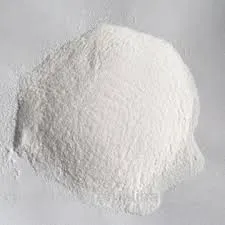
Сеп . 22, 2024 16:08 Back to list
hydroxyethyl cellulose cas number
Hydroxyethyl Cellulose A Versatile Polymer with Diverse Applications
Hydroxyethyl cellulose (HEC) is a non-ionic polymer widely recognized for its versatility and functionality across various industries. It is derived from cellulose, a natural polymer found in the cell walls of plants, and is modified by the introduction of hydroxyethyl groups. This modification enhances the solubility and performance of cellulose in aqueous solutions, making it an essential ingredient in many formulations.
The CAS number for hydroxyethyl cellulose is 9004-62-0, which helps in accurately identifying this compound in scientific literature and commercial products
. HEC is frequently used as a thickening agent, emulsifier, and film-forming agent, contributing significantly to the consistency and stability of numerous products.In the cosmetic and personal care industry, HEC plays a crucial role as a thickener in lotions, creams, shampoos, and conditioners. Its ability to create a smooth texture and enhance the spreadability of products makes it a preferred choice for formulators. Furthermore, HEC is known for its excellent water retention properties, which helps in keeping the skin moisturized, making it a popular ingredient in hydrating formulations.
In the construction industry, hydroxyethyl cellulose is utilized in the production of cement-based materials and plaster. It acts as a thickening agent and improves the workability of these materials. Additionally, HEC increases the water retention capacity, allowing for better adhesion and performance of the final product. This property is particularly advantageous in tile adhesives, where extended open time is crucial for effective installation.
hydroxyethyl cellulose cas number

The pharmaceutical industry also benefits from the unique properties of hydroxyethyl cellulose. It is used as a binder, thickener, and controlled-release agent in various drug formulations. Its biocompatibility and non-toxicity make HEC suitable for use in topical creams, gels, and ointments, providing a stable environment for active pharmaceutical ingredients.
Moreover, hydroxyethyl cellulose has applications in the food industry, where it serves as a food additive. It can improve the texture and stability of food products, acting as a thickener in sauces, dips, and dressings. Its ability to form a gel-like consistency is particularly useful in vegan and gluten-free food formulations, providing desirable mouthfeel without the use of animal-derived or gluten-containing ingredients.
Environmental sustainability is becoming increasingly crucial in product formulation. HEC, being derived from natural cellulose, offers an environmentally friendly alternative to synthetic polymers. As more companies seek sustainable options, the demand for hydroxyethyl cellulose is likely to grow in various sectors.
In conclusion, hydroxyethyl cellulose is a multifunctional polymer with diverse applications spanning multiple industries. Its unique properties as a thickening agent, emulsifier, and film former make it an indispensable ingredient in cosmetics, pharmaceuticals, construction, and food products. With its natural origins and growing popularity in sustainable formulations, HEC is poised to play an even more significant role in future innovations. As research continues and new applications are discovered, the potential of hydroxyethyl cellulose appears limitless.
-
Unlocking the Benefits of HPMC Products: A Gateway to Versatile Applications
NewsAug.07,2025
-
Unleashing the Potential of HPMC Ashland: A Comprehensive Look
NewsAug.07,2025
-
Tile Bonding Cellulose: The Key to Superior Adhesion and Durability
NewsAug.07,2025
-
Hydroxypropyl Methylcellulose Powder: The Versatile Component in Modern Pharmaceuticals
NewsAug.07,2025
-
Hydroxyethyl Cellulose: The Versatile Solution for Various Industries
NewsAug.07,2025
-
Hydroxyethyl Cellulose (HEC): The Versatile Polymer for Various Applications
NewsAug.07,2025







